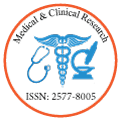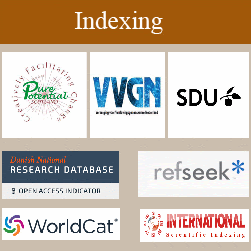Womens Socio-Economic Status as a Determinant of Utilization of Antenatal Care in Primary Health Centres: A Case Study of Nando Community, Anambra East Local Government Area, Nigeria
Author(s):
Okoronkwo Ijeoma, Adeyemo Florence, Nnamdi Nneka, Ada Nwaneri and Chjkaoodili Ihudiebube
The study examined the association between womens status and utilisation of maternal health care services of primary health care centres in Anambra east L.G.A of Anambra state. Five objectives were developed. A cross sectional descriptive research design was used. The study population consisted of women of child bearing age (15-49 years) who had given birth in the last five years. A sample size of 500 participants was used after using the formula for estimating sample size from a finite population. However, only 482 copies of the questionnaire were returned, giving a response rate of 96.4%. The instrument for data collection was a questionnaire developed by the researchers based on literature review. Data were analysed using the statistical package for the social sciences (SPSS version 18). The major findings showed that 71.5% utilised ANC while 44.4% utilised delivery healthcare services; 40.2% of the women took decisions jointly with their husbands while 32.4% took decisions alone on utilisation of ANC. As regards utilisation of delivery care services, 39% took decisions alone while 36.5% took decisions jointly with their husbands on where to have their baby. There were statistical significant associations between women decision making autonomy women education, women economic status and utilization of maternal health services. However, the study showed no statistical significant association between occupational status and utilisation of maternal health care services. The study concluded that the factors that influence the utilisation of maternal health care services are women decision making autonomy, educational status and their economic status



